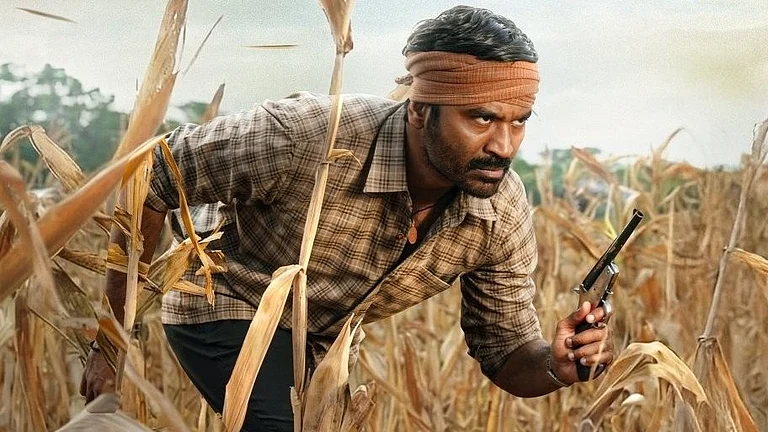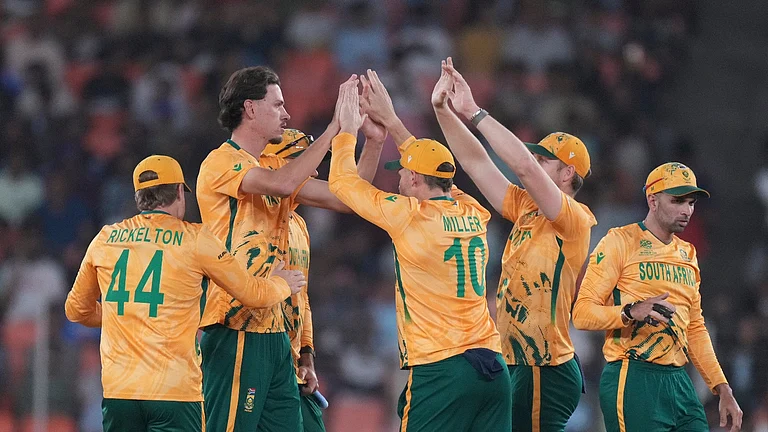Chinese President Xi Jinping told Prime Minister Narendra Modi that improving the bilateral relations serves common interests of both the countries and stressed the importance of proper handling of border issues for peace and tranquility in border region.
Xi and Modi interacted on the sidelines of the BRICS Summit in Johannesburg, South Africa. The two leaders spoke on the India-China military standoff in Eastern Ladakh and agreed to direct officials to intensify efforts at "expeditious disengagement and de-escalation". Since 2020, India and China are locked in a standoff in Eastern Ladakh and while the troops have disengaged at some places, friction areas remain and wider deescalation is also remaining.
This is the second time Xi and Modi have interacted since the standoff began. Earlier, the two leaders spoke on the standoff on the sidelines of the G20 Summit in Indonesia's Bali last year. The meeting was unacknowledged by the Government of India until last month.
Xi and Modi had a "candid and in-depth exchange of views" on current China-India relations and other issues of mutual interests on Wednesday on the sidelines of the BRICS Summit, said the Embassy of China in New Delhi in a statement.
The statement said that Xi stressed in the conversation with Modi that improving the India-China relations serve the common interests of both the countries.
The statement said, "President Xi stressed that improving China-India relations serves common interests of the 2 countries and peoples, and is also conducive to peace, stability and development of the world and the region. The two sides should bear in mind the overall interests of their bilateral relations and handle properly the border issue so as to jointly safeguard peace and tranquility in the border region."
Earlier, Indian Foreign Secretary Vinay Kwatra said Modi highlighted India's concerns on unresolved issues along the de facto border Line of Actual Control (LAC) in the Western Sector of the India-China border areas. In government parlance, the Eastern Ladakh is termed ast the Western Sector of India-China border areas.
Kwatra said, "The prime minister underlined that maintenance of peace and tranquility in the border areas and observing and respecting the LAC are essential for the normalisation of the India-China relationship...In this regard, two leaders agreed to direct their relevant officials to intensify efforts at expeditious disengagement and deescalation."
India and China are locked in a military standoff in Eastern Ladakh since early 2020 when Chinese soldiers entered Indian territory and clashed with Indian personnel. Several thousands of personnel along with war-waging equipment such as artillery, tanks, and fighter aircraft were rushed into the region after the initial clashes. The situation escalated on June 15, 2020, when 20 Indian soldiers and unspecified number of Chinese soldiers were killed in a clash at Galway Valley. The incident also led to a nosedive of India-China relations.
Since the outbreak of standoff, several rounds of military-led as well as diplomats-led talks have been held and troops have disengaged from certain areas, but some points of friction points remain unresolved. Around 50-60,000 soldiers continue to be deployed in the region in the absence of normalcy.
The Narendra Modi government maintains that peace and tranquility at the border is the basis of the bilateral relationship whereas the Chinese government wants to separate the border situation from the rest of the relationship. The Modi government has said the Ladakh standoff has driven the India-China relationship to its lowest point since 1962, when India and China fought a war that India lost, and that the situation at the border has "eroded strategic trust and the public and political basis of the relationship".
On July 24, National Security Advisor (NSA) Ajit Doval met top Chinese top diplomat Wang Yi on the sidelines of a BRICS meeting in South Africa and a government statement quoted Doval as saying that the situation at the border "eroded strategic trust" and the public and political basis of the relationship. The statement further said Doval emphasised the importance of continuing efforts to fully resolve the situation and restore peace and tranquillity in the border areas so as to remove impediments to normalcy in bilateral ties, reported PTI.
Last month, the Ministry of External Affairs (MEA) said in a statement that Modi and Xi spoke on the need to stabilise bilateral relations at a dinner during the G-20 Summit in Indonesia last year. The meeting went unacknowledged until last month.


























